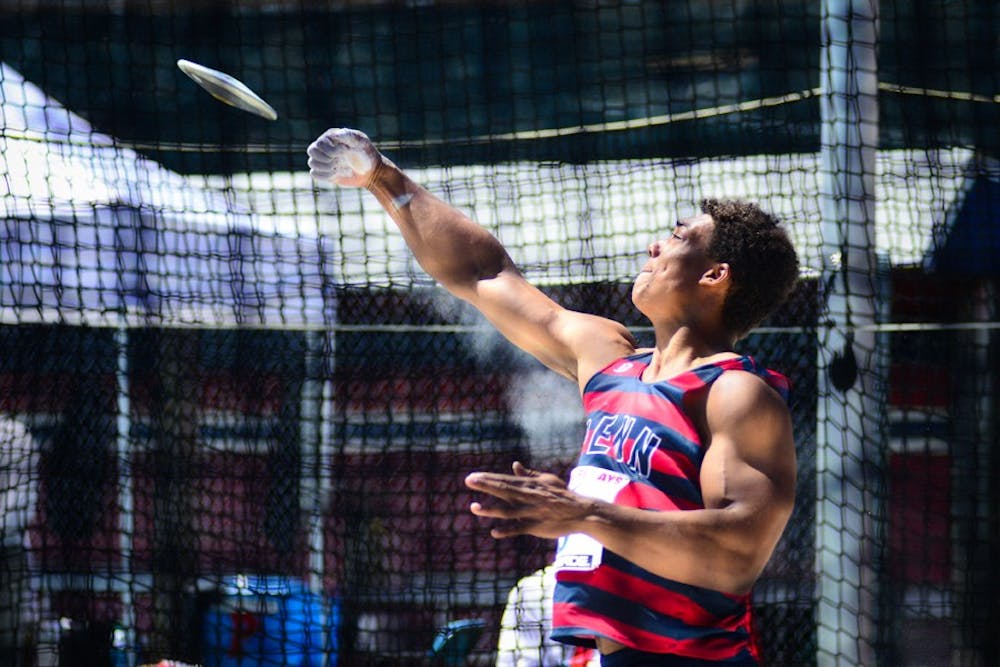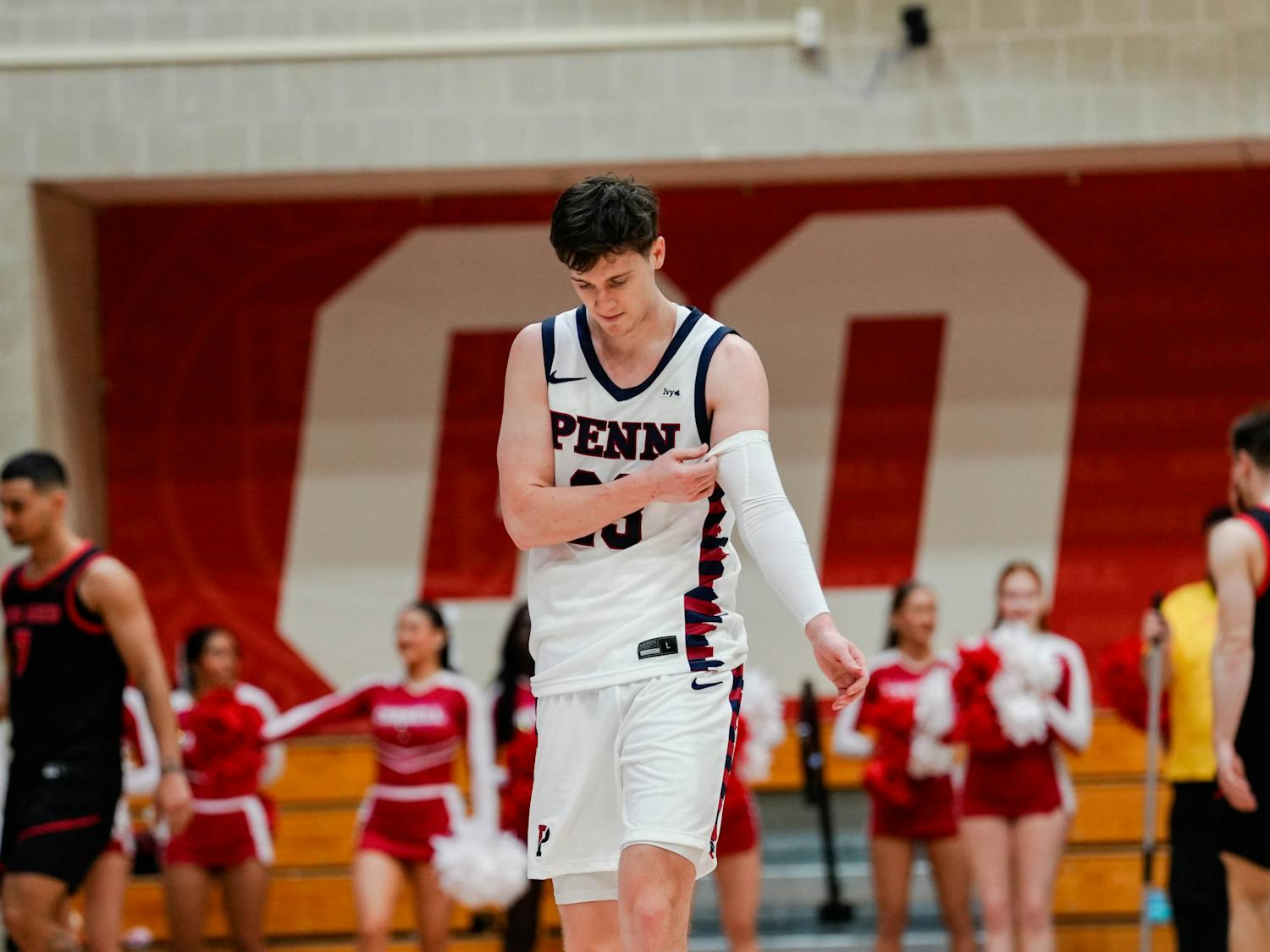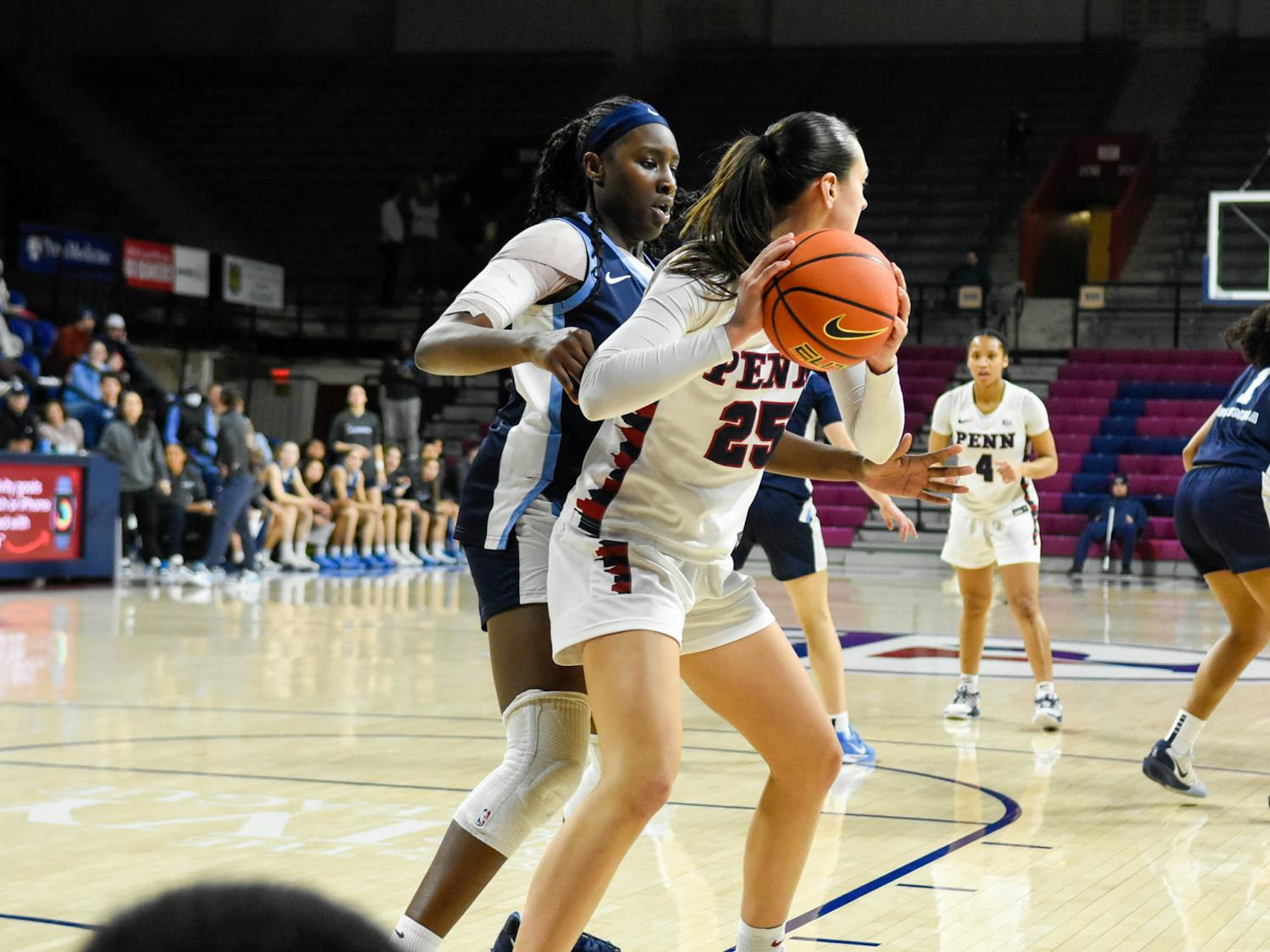After a hard-fought battle to get to the Olympic stage, Wharton alumnus Sam Mattis reached the final round of the discus event and finished in eighth place out of the 12 finalists.
Although he placed behind Reggie Jagers and Mason Finley at the U.S. Olympic Trials in Eugene, Oregon, neither of his fellow countrymen reached the final, and he became the only American to do so during this Olympic cycle.
His improvement in rank came after throws in both rounds that acted as season-highs.
In his first series of throws on Thursday, his best one logged a 63.74 meter length, which was strong enough to put him in the top 12 amongst all of the competitors.
For Tony Tenisci, Mattis’ throwing coach while at Penn, this accomplishment served as a massive victory for the former Quaker, as it was something that could hardly be replicated.
“I said [to him], ‘You are in a very select club.’ There’s only so many Olympic finalists per event,” Tenisci said, “and that’s a dream come true, whether it be a gold medal or eighth place. You’re a finalist, you’re in the final round. That is just so huge.”
Then, in the final round on Saturday, Mattis topped himself, throwing the discus a 63.88m length. The distance was 3.19m from putting him in medal position, but it was good enough to place him at eighth in the final.
Prior to his competing on Saturday, Mattis made headlines with his entrance.
RELATED
Penn track and field alum Sam Mattis qualifies for Olympic Games
'A long shot': Inside Penn alum Regina Salmons' journey to the Olympic Games
As he walked onto the field, Mattis, who’s long been an advocate for social and racial justice, looked into the camera that was filming him, took a bow and raised his fist in the air.
“We’re having the Olympics, and it’s great that we can distract ourselves, but at the same time we athletes are people, and we’re part of this world, and there are a lot of problems facing this world,” Mattis said to the Washington Post. “So I think it was important to just speak out on that while I had a platform and some cameras on me for four or five seconds, and keep our focus on that even while we’re at the Olympic Games. I’m hoping that sparks a conversation.”
Mattis’ fist raise went along with numerous other American athletes, including members of the U.S. women’s soccer team, who made similar statements prior to or after their Olympic competition.
Once he’d made his entrance and competed, Mattis told Tenisci that he couldn't "wait to go to sleep,” as Tenisci said it was hard for him to stave off sleep-deprivating anticipation ahead of such a big moment.
That big moment was made even bigger by the fact that Mattis became the first Penn track and field athlete to compete at the Games since Michael Aguilar ran in the 400 meter hurdles for Belize in the 2004 Olympics. Additionally, Mattis became the first Penn track and field athlete since 1976 decathlon competitor Fred Samara to represent the U.S. at the Olympics.
Mattis' Olympic berth and success also acted as a culmination of years of hard work to get to such a lofty position in the discus world.
In 2016, Mattis missed the cut for the Rio Olympics after weather issues caused him to struggle at the U.S. Olympic Trials.
After he graduated from Penn that same year, Mattis turned down a job on Wall Street and instead worked a series of odd jobs as a way of supplementing his discus career, which was a move that cemented his dedication to the sport.
“I’m so glad for him because he deserves this so much,” Tenisci said. “This kid has just sacrificed a lot for this. He had such a work ethic and such a love of the throwing, and it just finally came to him. He had to wait five years, not four, to get that dream because he missed Rio [after] that horrible situation in Eugene.
“For someone to just keep that intensity for another five years, to do the sacrifices, to give up the things he gave up, I just admire [him] so much. He’s such a class act.”
As for whether or not Mattis has enough energy left in the tank to keep his career going until the 2024 Olympics in Paris, France, Tenisci appeared optimistic that he would be able to do so. He explained that Mattis will find it hard to step away, given that he knows he can do more in the sport before calling it quits.
Due to the restrictions surrounding fans attending the Tokyo Games, Tenisci was unable to follow through on his plan to watch Mattis compete at the Olympics in person, but he’s hopeful that both he and Mattis will get the full Olympic experience four years from now.
“I told him we had planned sake and sushi, and so I said, 'Well, I guess it’ll have to be champagne and caviar, and we’ll have to do it in Paris.' And he laughed, and he said, 'Ok.'”









